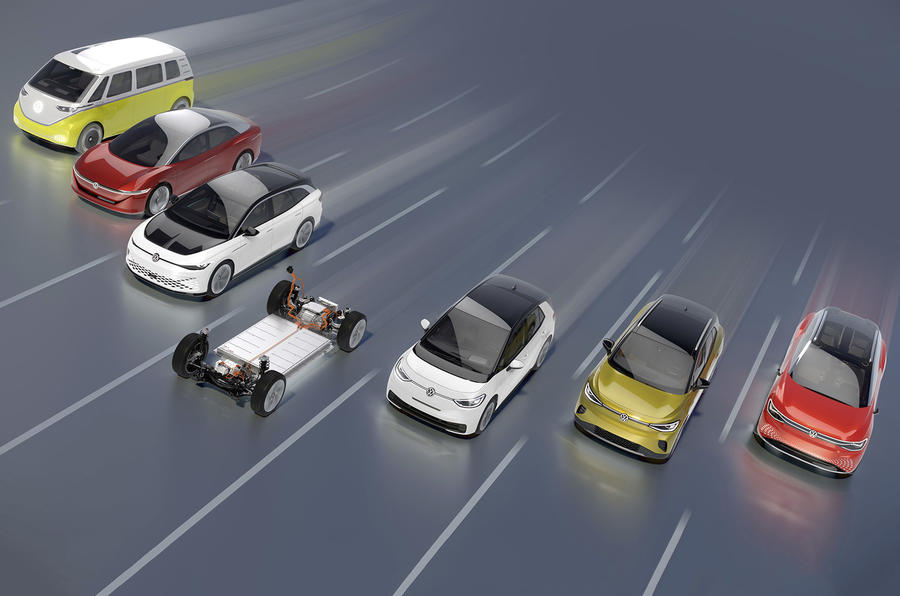The UK government’s plug-in car grant, which takes £2500 off the cost of eligible new EVs, will remain until at least the 2022-23 financial year, but what will happen after that is unknown.
The automotive industry has been vocal about it staying in place beyond that date in order to help the UK’s car parc go electric by 2030. It has been reduced twice since its introduction at £5000 in 2011, while plug-in hybrids had their eligibility rescinded two years ago and an EV price cap was introduced in 2020 and lowered this year.
The fate of the grant – which has to date aided more than 285,000 EV purchases – is just one of a number of uncertainties clouding the future of EVs beyond 2023, including around their taxation. In a report released in July, the SMMT warned that if the sector doesn’t “transition successfully to a zero-emissions future with ambitious global trading terms”, it could lose some 90,000 jobs. However, the industry body said that if the UK becomes a leader in zero-emissions vehicles, 40,000 new well-paid and highly skilled jobs could be created by 2030.
In order to encourage more EVs onto the country’s roads, the SMMT called on the government to commission an independent review to “holistically consider the long- term future of fuel, vehicle and road-based taxes in a decarbonised sector”. It added that if we want people to invest in EVs, “we need to ensure that they will not be surprised by new taxes down the line and that these new taxes don’t undermine the transition to zero-emissions vehicles”.
The SMMT also wants the government to continue the EV grant beyond its current term and exempt ultra-low- emissions vehicles (ULEVs) from taxation for the next five years. It said that short-term tax exemption, including from VAT, as well as extending consumer and fleet incentives, would help bridge the gap until ULEVs can reach total cost of ownership parity on their own.
However, according to Ian Fletcher of industry analyst IHS Markit, removing the grant won’t adversely affect EV sales in the future, as manufacturers will be motivated to shift as many EVs as possible in order to cut average emissions and therefore avoid fines. Fletcher said: “I think a lot of the manufacturers will find a way, even if it means going to the in-house finance unit, if it means that they don’t have to pay £400 million or whatever the fine is. It’s better for them in the long term that they get these vehicles out there in the marketplace, and they will find a way. “From a manufacturer perspective, they’re probably not as dependent on subsidies to bring in customers, as a £2500 subsidy is modest. It’s a psychological thing, ultimately.”














Join the debate
Add your comment
Private vehicle ownership, and retro fitting of old housing stock with charging points… is probably not a long term plan for the majority. For example, Tesla is moving its vehicle production over to driverless taxi’s from 2025, it can make far more money from driverless tech, than it can selling cars. The majority won’t own their own vehicles. They will hire electric driverless taxi’s for each journey (Tesla targeting 1$ per mile). It’s inefficient for most people having a car sat outside their home all night, and sat outside work all day. Driverless vehicles fix that inefficiency problem, for most urban trips in the England - vehicles get efficiently shared. Travel distance to workplaces is going to become a major cost problem, people will probably choose to live closer to work to save on rising travel costs/time. and a more flexible work market will require people to be more flexible about moving for employment. That will cause a reversal of home ownership, back to rentals, through corporate/social landlords. Home energy use is the next kicker. Bringing the bulk of England’s old housing stock up to standard is going to be very difficult, and very expensive. Private landlords will need to do a lot of work to bring their properties up-to standard, just to be able to meet legislation to legally rent them out. Government help will go into new corporate/social home building schemes that are for flexible rental, designed to be very energy efficient, and properly maintained by professional rental companies to remain efficient. I’m guessing much of this new housing is expected to spring up around the new Freeports. Subsidising charging points in privately owned, old housing stock, in the wrong location for new industries, just doesn’t make much sense. Lloyds Bank I think announced it will become a major corporate landlord, plans to own 50,000 new homes by 2025. Other financial behemoths are steamrolling into Real Estate Investment Trusts too,
These subsidies are now indefensible and should be scrapped. It is outrageous that a tax payer running around in a £1k car because that is all they can afford is subsidising someone else buying a £30k car.
The truth is, we all need to buy less new stuff. The purchase of any new EV consumes valuable raw materials, environmental destruction, and pumps tonnes of CO2 into the atmosphere.
A radical step change is needed and soon. The chronic oversupply of new cars is not a reason to keep going as before.
I would be in favour of stopping the subsidies now. They arent needed. They only apply to lower priced EVs now, and when the last reduction happened, most EV makers adjusted their prices all of a sudden so they still qualified. If the grant went away, they would quickly adjust
As others have said, its wrong that people pay taxes to enable others, often better off, to benefit from a handout. If EVs are any good they will sell on their own merrit.
Its not as if they dont get many other huge subsidies as well afterall. Almost tax free fuel, no road tax, no £40,000 purchase price tax, almost zero CoCar tax.